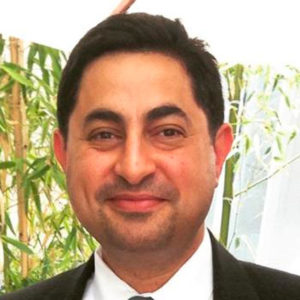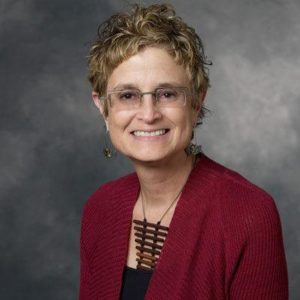
Ron Kikinis, MD
Director of the Surgical Planning Laboratory
Professor of Radiology
Department of Radiology
Brigham and Women’s Hospital
Harvard Medical School
Title: Evolving Health Care from an Artisanal Organization into an Industrial Enterprise
Refreshments will be provided
Join via Zoom: https://stanford.zoom.us/j/996417088
Abstract: During the last decade, results from basic research in the fields of genetics and immunology have begun to impact treatment in a variety of diseases. Checkpoint therapy, for instance has fundamentally changed the treatment and survival of some patients with melanoma. The medical workplace has transformed from an artisanal organization into an industrial enterprise environment. Workflows in the clinic are increasingly standardized. Their timing and execution are monitored through omnipresent software systems. This has resulted in an acceleration of the pace of care delivery. Imaging and image post-processing have rapidly evolved as well, enabled by ever-increasing computational power, novel sensor systems and novel mathematical approaches. Organizing the data and making it findable and accessible is an ongoing challenge and is investigated through a variety of research efforts. These topics will be reviewed and discussed during the lecture.
About:
Dr. Kikinis is the founding Director of the Surgical Planning Laboratory, Department of Radiology, Brigham and Women’s Hospital, Harvard Medical School, Boston, MA, and a Professor of Radiology at Harvard Medical School. This laboratory was founded in 1990. Before joining Brigham & Women’s Hospital in 1988, he trained as a resident in radiology at the University Hospital in Zurich, and as a researcher in computer vision at the ETH in Zurich, Switzerland. He received his M.D. degree from the University of Zurich, Switzerland, in 1982. In 2004 he was appointed Professor of Radiology at Harvard Medical School. In 2009 he was the inaugural recipient of the MICCAI Society “Enduring Impact Award”. On February 24, 2010 he was appointed the Robert Greenes Distinguished Director of Biomedical Informatics in the Department of Radiology at Brigham and Women’s Hospital. On January 1, 2014, he was appointed “Institutsleiter” of Fraunhofer MEVIS and Professor of Medical Image Computing at the University of Bremen. Since then he is commuting every two months between Bremen and Boston.
During the mid-80’s, Dr. Kikinis developed a scientific interest in image processing algorithms and their use for extracting relevant information from medical imaging data. Due to the explosive increase of both the quantity and complexity of imaging data this area of research is of ever-increasing importance. Dr. Kikinis has led and has participated in research in different areas of science. His activities include technological research (segmentation, registration, visualization, high performance computing), software system development, and biomedical research in a variety of biomedical specialties. The majority of his research is interdisciplinary in nature and is conducted by multidisciplinary teams. The results of his research have been reported in a variety of peer-reviewed journal articles. He is an author and co-author of over 350 peer-reviewed articles.
Follow us on Twitter: @StanfordIBIIS

PHIND Seminar Series: “Prediction of Future Lymphoma Development Based on DNA Methylation Profiles from Peripheral Blood”
Almudena Espin Perez, PhD
Postdoctoral Research Fellow
Biomedical Informatics
Stanford University
Beckman Center, Munzer Auditorium (B060)
12:00pm – 1:00pm Seminar & Discussion
1:00pm – 1:15pm Reception & Light Refreshments
RSVP here: https://www.onlineregistrationcenter.com/APerez
ABSTRACT
Subjects with Non-Hodgkin Lymphoma (NHL) have abnormal lymphocytes that multiply and accumulate to form tumors in the lymph nodes and other organs. Currently, there are no predictive models with high performance that can predict the risk of developing NHL.
We present a computational framework that accurately predicts future (up to 16 years) NHL from a signature based on DNA methylation profiles of peripheral blood samples. We studied differences in specific DNA methylation levels from blood samples between future NHL group and the control group (470 samples) from two prospective cohorts. We developed a predictive model using advanced artificial intelligence methods for NHL diagnosis based on a set of key CpG sites. The validation tests showed that our signature 1) predicts mainly “control” in an independent population of 656 healthy subjects, 2) predicts “future case” with extremely accurate performance in tissue samples from four independent NHL cohorts (662, 29, 31 and 29 subjects), with one of the cohorts (662 subjects) corresponding to children with B-cell lymphoma, 3) predicts mostly healthy in a cohort of children with 74 children in remission, 4) works for both HIV positive subjects and HIV negative subjects, 5) yields almost perfect predictions regardless of the NHL subtype, and 6) is 84% accurate at predicting T-cell lymphoma in children, despite its derivation in B-cell lymphoma in adults.
ABOUT
Almudena Espin Perez’s interests include developing algorithms and novel computational methods for early cancer detection. High-throughput technologies in the field of molecular biology are generating huge amounts of biological data and transforming the scientific landscape. A major focus of her research is on building computational methods to 1) study genomics and epigenetic data 2) integrate genomics and imaging data at single-cell level resolution and 3) leverage existing large-scale transcriptomic datasets to address relevant biological questions by developing computational deconvolution tools to infer the abundance of different cell types from mixed cell populations. Dr. Perez aims to improve the understanding of the molecular mechanisms behind cancer development, which could potentially lead to biomarker discovery and improve early detection, treatment strategies and decision-making.
Hosted by: Sanjiv Sam Gambhir, M.D., Ph.D.
Sponsored by the PHIND Center and the Department of Radiology

Tessa Cook, MD, PhD
Assistant Professor of Radiology
Perelman School of Medicine
University of Pennsylvania
Title: Deploying AI in the Clinical Radiology Workflow: Challenges, Opportunities, and Examples
Abstract: Although many radiology AI efforts are focused on pixel-based tasks, there is great potential for AI to impact radiology care delivery and workflow when applied to reports, EMR data, and workflow data. Radiology-pathology correlation, identification of follow-up recommendations, and report segmentation can be used to increase meaningful feedback to radiologists as well as to automate tasks that are currently manual and time-consuming. When deploying AI within the clinical workflow, there are many challenges that may slow down or otherwise affect the integration. Careful consideration of the way in which radiologists may expect to interact with AI results should be undertaken to meaningfully deploy radiology AI in a safe and effective way.

Please note this seminar is now cancelled and will be rescheduled for a future date. Please contact Ashley Williams (ashleylw@stanford.edu) with any questions or concerns. Thank you for your understanding!
PHIND Seminar Series: “A Stroke Monitoring and Alert System for a Future Without Late Presentation”
Orestis Vardoulis, Ph.D.
Postdoctoral Research Fellow
Pediatric Surgery
Stanford University

Please note this seminar is now cancelled and will be rescheduled for a future date. Please contact Ashley Williams (ashleylw@stanford.edu) with any questions or concerns. Thank you for your understanding!
CEDSS: “The First Cell and the Human Cost of going after Cancer’s last”
Chan Soon-Shiong Professor of Medicine
Director, Myelodysplastic Syndrome Center
Columbia University Medical Center

Mini-Grand Rounds: Emerging treatment strategies for COVID-19
Aruna Subramanian, MD
Clinical Professor, Medicine
Stanford University
David Ha, PharmD
Infectious Disease Resident
Stanford University
7:00am – 7:30am, Zoom
The Stanford Radiology Mini-Grand Round live session events are by invitation only. Invites with link to Zoom video will be sent via email to Department faculty and staff only. Recordings will be made available to the public shortly after the event.

Mini-Grand Rounds: Effective faculty-trainee workflow and education during the COVID-19 pandemic
Payam Massaband, MD
Clinical Associate Professor, Radiology
Stanford University
7:00am – 7:30am, Zoom
The Stanford Radiology Mini-Grand Round live session events are by invitation only. Invites with link to Zoom video will be sent via email to Department faculty and staff only. Recordings will be made available to the public shortly after the event.

Mini-Grand Rounds: CoVID19: Lessons learned from the global response
Michele Barry, MD, FACP
Drs. Ben & A. Jess Shenson Professor
Senior Associate Dean, Global Health
Director, Center for Innovation in Global Health
Professor of Medicine & Senior Fellow at the Woods Institute and at the Freeman Spogli Institute
7:00am – 7:30am, Zoom
The Stanford Radiology Mini-Grand Round live session events are by invitation only. Invites with link to Zoom video will be sent via email to Department faculty and staff only. Recordings will be made available to the public shortly after the event.

Mini-Grand Rounds: How to stay productive during the COVID-19 pandemic
Garry Gold, MD
Vice Chair, Research and Organization
Professor, Radiology
Stanford University
7:00am – 7:30am, Zoom
The Stanford Radiology Mini-Grand Round live session events are by invitation only. Invites with link to Zoom video will be sent via email to Department faculty and staff only. Recordings will be made available to the public shortly after the event.

Mini-Grand Rounds: Update on COVID-19
Shanthi Kappagoda, MD, MS
Clinical Associate Professor, Medicine – Infectious Diseases
Stanford University
7:00am – 7:30am, Zoom
The Stanford Radiology Mini-Grand Round live session events are by invitation only. Invites with link to Zoom video will be sent via email to Department faculty and staff only. Recordings will be made available to the public shortly after the event.